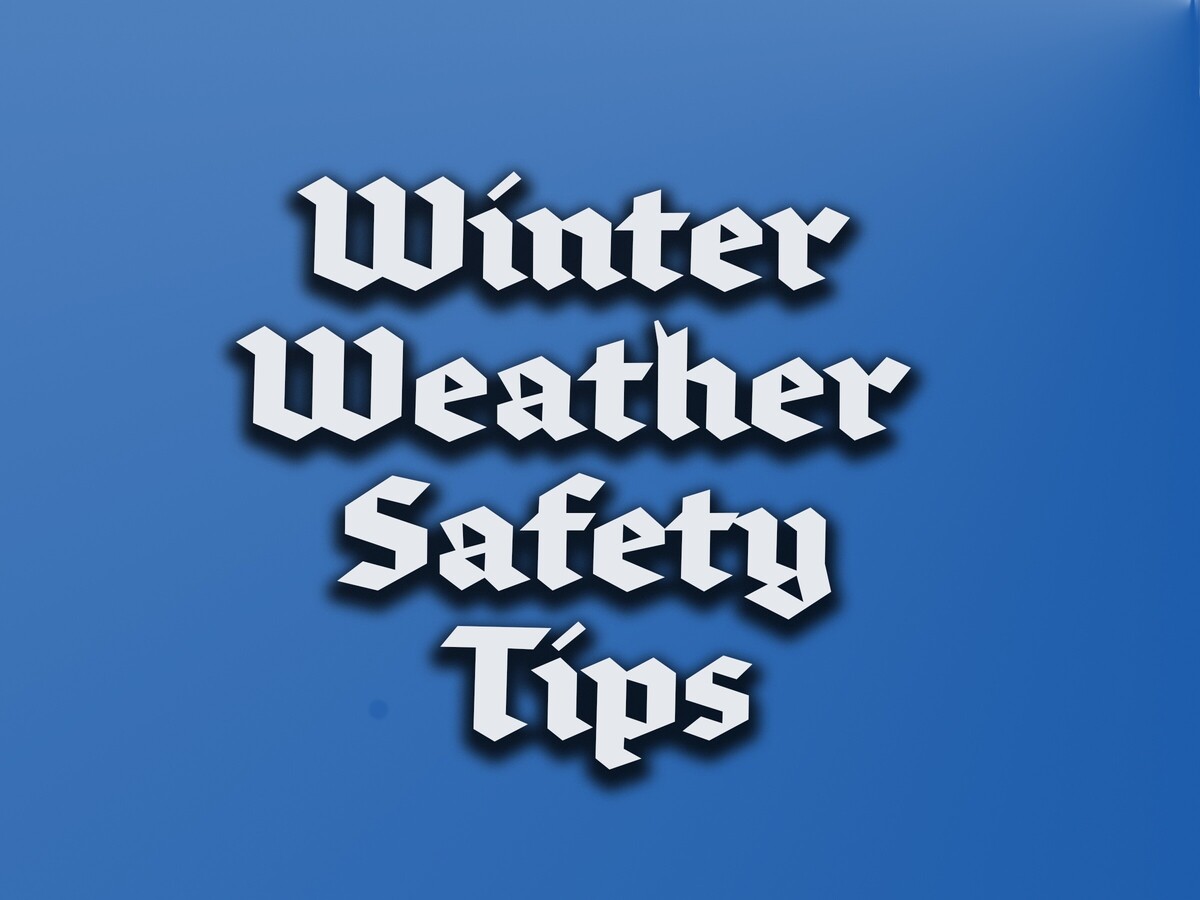Image


WARREN COUNTY, OH -- The winter season ushers in lower temperatures, shorter days and the holidays. But with it comes something unexpected: an increased risk of injuries. Icy surfaces, fire hazards and other seasonal factors send thousands to the emergency department (ED) every winter.
By preparing and exercising caution, you can keep yourself and your family safe and focus on all the good that winter has to offer. Mercy Health’s Coordinator of Emergency Services, James McGrath, recently shared tips to help you navigate the potential risks that come with colder temperatures and how to get ahead of an emergency to ensure loved ones get the care they need.
According to the AAA Foundation, nearly half of all car accidents involving poor weather happen during winter. This is why McGrath stressed, if traveling – especially long distances, it’s important to ensure your vehicle is in good running condition.
“Take it to a mechanic who can perform an inspection of antifreeze levels, battery and ignition systems, brakes, lights, etc., to decrease the chance of an accident or breakdown,” he recommended. “You should also keep an emergency kit in the car with essentials like jumper cables, flares and an ice scraper — you never know when you’ll need it.”
Preparing the vehicle is just one piece of the puzzle. As the driver, planning ahead makes a world of difference. Getting a good night’s sleep, leaving early to avoid rushing and identifying a designated driver (sober if drinking) are all non-negotiables.
While nothing feels better than cozying up next to a crackling fire or warming up the bathroom with a space heater before a shower, it can be risky. According to the U.S. Fire Administration, heating is the leading cause of winter fires. In fact, nearly half of all fires related to heating equipment occur from December-February.
McGrath shared that by following a few key guidelines, you can stay warm while significantly reducing the chance of a fire. These include:
Ever noticed an increased appetite during the winter? It’s not just you. Colder climates can make you crave heartier foods and some experts say biological factors can make us hungrier during the season. While many of us may be tempted to make large batches of soul-warming soups or chili to eat throughout the week, you may want to think twice about that.
McGrath highlighted that the FDA’s guidelines recommend discarding leftovers after three to four days to avoid food-borne illnesses like Salmonella and Listeria. These nasty bugs can lead to a slew of gastrointestinal issues and can even land you in the hospital. He suggests that if you’re looking to keep leftovers for longer, individually package portions in airtight containers and freeze them. Frozen leftovers can be kept for three to four months.
“Remember: just because food looks and smells fine, doesn’t mean it is,” he cautioned.
According to the National Emergency Number Association, 9-1-1 receives 240 million calls each year. This means that significant portion of the U.S. population will request EMS services at some point. There are a few things that can be done before an emergency even happens to ensure that you or a loved one receive care as quickly possible.
While colder weather can increase the risk of accidents and injuries, preparation and mindfulness can make all the difference. By exercising increased caution and planning ahead, you can safely enjoy winter and all the excitement that comes with it.